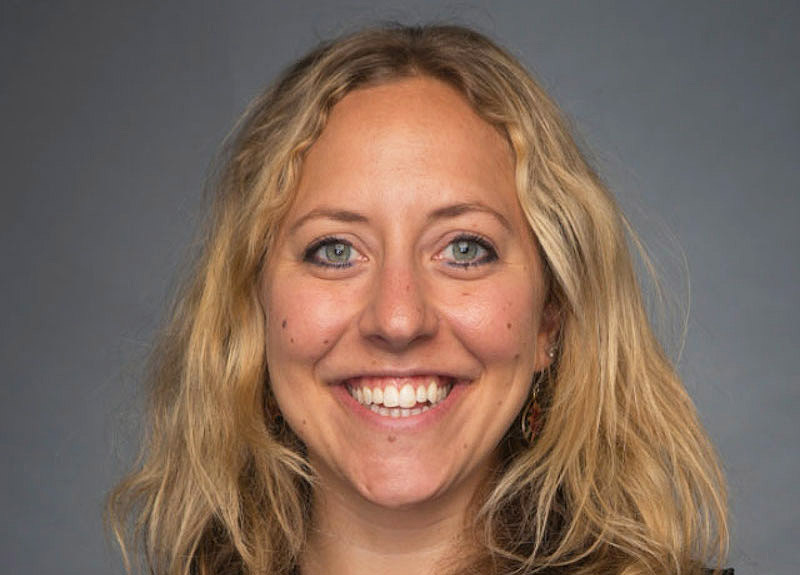“Assess how you are going to pay for school, research scholarship opportunities, be frugal with living expenses if need be, and design a future plan for paying off loans that you are committed to working towards.”
Ashley Szczesiak describes herself as a visual artist, educator, and explorer. At Middlebury College, she earned a BA in Film and Media Culture Studies, with a minor in the History of Art and Architecture. She went on to pursue a master’s degree (MAT) in Arts Education as the recipient of a New Artist Society Fellowship from the School of the Art Institute of Chicago.
ME: Ashley, thanks for giving of your time to share with the Memorable Essay community. I am happy that others will be able to learn from your wisdom and journey.
Can you tell us what was your single biggest motivation for pursuing a master’s?
Ashley: I decided to pursue my master’s degree because I wanted to be my own boss. What I mean by boss is that I realized that I wanted to have more autonomy over how I spend my time and energy at work and over the course of my future career trajectory.
I am a visual artist who spends most of my time teaching. Initially, I began teaching to support my personal practice, but lately, teaching has become part of my practice of creating and managing what I see to be “social projects.”
For years after pursuing my bachelor’s degree, I worked in assistant positions to support the needs of other artists, art historians and art educators in professional studios, art museums, and pubic and private educational settings.
While each of those experiences proved to be very valuable in developing my art practice, and essential in teaching me the practical skills needed to apply the knowledge I acquired as an undergraduate, after four years of various apprenticeships (the equivalent of another undergraduate period of development and growth), it became clear to me that assistant positions were no longer appropriate for my skill level and the scope of my professional aspirations.
I noticed that I was approaching each day at work with an increasingly unsatisfied feeling that I was not fully exploring and applying my potential, that I was working too hard for too little pay, and that all my hard work was not actually going to pay off and lead me in the right direction to grow, because I was not on the right track; I needed to jump levels.
I distinctly remember working as an assistant again before committing to apply for that year’s application cycle and realizing, “You know what? I can do this. I’m ready to be in charge. I want to manage my own students, my own assistants, my own classroom. Boom.”
ME: Boom. And what was the biggest sacrifice you made to successfully complete your master’s?
Ashley: I left a city that I loved to move to a city that I did not love.
My homesickness was so severe that I often found myself crying in class during my first semester. A quick look at my resume could show that I might in fact be a professional vagabond, since I have moved annually all over the country — and even internationally — to take various social justice-driven art education positions. But the move I made to attend graduate school was the first move I made that felt contrary to the wishes of my heart.
I was heartbroken. NYC has always felt like home to me; at the time, I had a deep sense of connection to my family and friends who were there, and the last thing I wanted to do after years of moving was to uproot my recent sense of settlement and solace for an entirely new city (and culture) that I would need to make my home for at least two years.
In the end, I managed to heal my heart by merging my own personal experience in the midwest with my pedagogical practice by focusing my graduate thesis research on phenomenological and autobiographical accounts of how teenage Chicago Public School students also conceived of the concept of “home.”
ME: I understand. I think for many people who suffer from homesickness while in school, they choose topics of study that serve as its catharsis. I definitely did.
Master’s studies can be a trying road, so I am happy you made it! Tell us, what should anyone contemplating a Master of Art consider before applying?
Ashley: Be realistic and disciplined about your financial plan.
Assess how you are going to pay for school, research scholarship opportunities, be frugal with living expenses if need be and design a future plan for paying off loans that you are committed to working towards.
Graduate school is supposed to catapult you into a new social position that eventually affords you more happiness and freedom. Having a smart financial plan and sticking to it is one clear way to work towards that very freedom that we are seeking from our studies.
ME : You could not have said that more perfectly. Thank you. And what advice would you give someone who wants to successfully pursue their master’s?
Ashley’s Four Tips on What to Consider Before Starting a Master’s:
1. Be serious about your commitment. A healthy dose of doubt and readjustment to what could be a radical shift in lifestyle should leave within the first semester. Remember, graduate school might only be four semesters! You owe it to yourself to be solidly committed to your reasons for being there. Be serious enough to give it all you can and get all you can in return.
2. Build relationships with your professors to develop professional mentorships that will last after graduate school ends. Networking is not the right word. It was helpful for me to acknowledge that the relationships with my professors that seemed most special were not mutually equal “professional friendships” in which we took turns giving and receiving. They were ones in which expectations were explicitly established that one person would whole-heartedly give more, and the other would receive the wisdom and generosity of their shared experience as an act of goodwill that would then be passed on / paid forward.
3. Call on your colleagues (cohort members) for support and healthy competition. It was amazing how much harder I could work when I realized that I had a receptive audience to listen and constructively challenge me to think through my ideas/actions even further.
4. Devise a plan to take care of yourself by setting aside time for just you each week, regardless of what is due or demanded of you by others. The rigors of graduate school beckoned me to finally confront my tendency to run myself ragged and merely get to the end of whatever I set out to do. I took the time to finally figure out what it might look and feel like for me to practice healthy “self-care” and accept (and manage) that from now on, the nature of my professional career and personal life lies in the marathon category.
ME: Indeed. Life is not a sprint race. Thank you, Ashley!
Ashley Szczesiak, MAT, is licensed to teach visual art in the State of Illinois (Grades K-12) and holds Initial Conditional Professional Licensure (Grades K-12) in New York. She views travel as part of her personal practice and has pursued social justice art education opportunities in Vermont, New Hampshire, North Carolina, Arizona, China, Illinois, and Colombia. Currently based in New York City, Ashley works as a full-time visual arts teacher and advisor at a private Quaker high school for students with learning disabilities.



